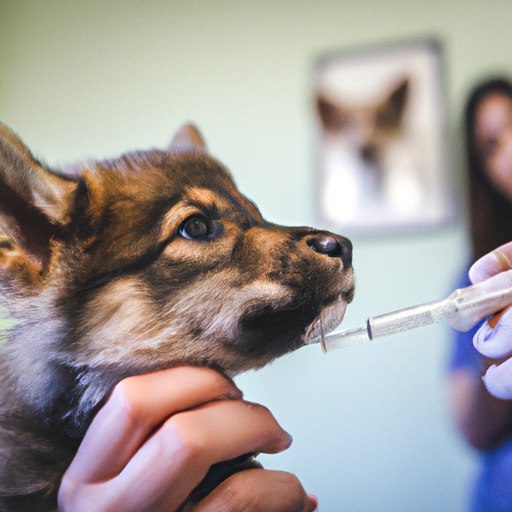As a caregiver, ensuring the health and well-being of your furry companion is your top priority. A critical aspect of this duty involves understanding when your pet needs their vaccinations. Let’s delve into the world of canine immunization and explore when dogs get their shots.
The Importance of Vaccinating Your Dog
One of the most essential responsibilities you have as a dog owner is to ensure that your pet is vaccinated. Vaccinations play a crucial role in protecting your furry buddy from an array of serious, life-threatening diseases.
Vaccines work by triggering immune responses, helping your dog’s body fight off infections. They essentially train your dog’s immune system to recognize and combat harmful pathogens.
Here’s a succinct table outlining some key diseases that vaccines protect your pet from:
| Disease | Symptoms | Severity |
|---|---|---|
| Distemper | Coughing, fever, nasal discharge | Extremely severe |
| Parvovirus | Vomiting, diarrhea, weight loss | Extremely severe |
| Rabies | Aggression, paralysis, hydrophobia | Always fatal |
Understanding the Vaccination Schedule
Knowing when your pet needs their shots is just as important as understanding why they need them. Generally, puppies receive their first round of vaccines at six to eight weeks old.
Here is a typical schedule:
- 6-8 weeks: Distemper, Parvovirus
- 10-12 weeks: DHPP (Diseases mentioned above, including Hepatitis)
- 16-18 weeks: DHPP, Rabies
Remember, the above schedule is a general guide. You should always consult with your veterinarian to determine the best timing and frequency for your dog’s vaccinations.
Monitoring Your Dog Post-Vaccination
After your dog gets their shots, it’s important to monitor them for any adverse reactions. While vaccines are generally safe, side effects, though rare, can occur.
Symptoms to watch for include:
- Fever
- Swelling at the injection site
- Reduced appetite and activity levels
If you notice any of these symptoms lasting more than a day or two, it’s time to contact your vet.
Maintaining Your Dog’s Vaccination Schedule
After your puppy’s initial immunizations, they’ll need regular boosters throughout their life. The frequency of these boosters can vary based on factors such as your dog’s health, lifestyle, and local laws.
A simple and effective way to keep track is to maintain a dedicated health calendar for your pet. This allows you to anticipate upcoming vaccinations and arrange for vet appointments in advance.
FAQs
Q: Can I vaccinate my dog at home?
A: While it is technically possible, it’s highly recommended to have vaccinations administered by a professional veterinarian.
Q: How often do adult dogs need vaccines?
A: Most adult dogs need yearly boosters, but it can vary. Always consult with your vet to determine the best schedule.
Q: Do indoor dogs need vaccines?
A: Yes, even indoor dogs need vaccines. Diseases can be brought into the home on shoes, clothing, or other pets.
Remember, your dog depends on you for their wellbeing. By understanding when they need their shots, you’re taking a crucial step in ensuring a long, healthy life for your loyal companion.



